1. Maverick
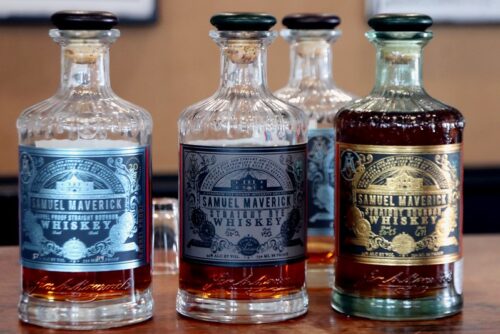
When you call someone a “maverick” today, you’re probably describing an independent thinker or someone who refuses to follow the crowd. The word actually comes from Samuel Maverick, a 19th-century Texas rancher who refused to brand his cattle. His unmarked animals roamed freely, which made his name synonymous with going against convention. Over time, that stubborn independence became a compliment instead of a quirk.
The reason we use “maverick” so often now is that it still captures the spirit of individuality Americans admire. You’ll hear it in politics, business, and even sports commentary. It’s one of those Wild West words that shifted from describing livestock to describing character. That leap shows how frontier culture shaped American values.
2. Buckaroo
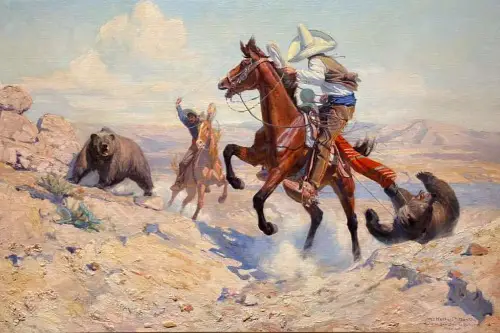
“Buckaroo” sounds like a playful nickname today, but it has deep roots in cowboy culture. The term is actually an Anglicized version of the Spanish word “vaquero,” meaning a cattle herder. As Spanish and Mexican traditions blended with American ranching life, the pronunciation evolved into “buckaroo.” It became a catch-all term for cowboys working the ranges of the West.
We still hear it today, especially in stories, children’s books, and even in rodeo culture. It’s a reminder of the linguistic blending that helped shape the Wild West. When Americans use “buckaroo,” they’re echoing centuries of cultural exchange. That makes it more than a cowboy cliché—it’s living history.
3. Dry Gulch

To “dry gulch” someone originally meant to ambush them in a ravine, a tactic used by outlaws in the frontier days. A “gulch” is a narrow valley, often dry except after rain, which made it the perfect hiding place. Criminals would lie in wait for unsuspecting travelers, and the phrase became infamous. The danger of being “dry gulched” was a real fear on the trails.
Today, the phrase has softened but still conveys treachery or sneakiness. People might say they were “dry gulched” in business or tricked by someone they trusted. It’s a vivid way of expressing betrayal that traces directly back to frontier violence. The survival of this phrase shows how strongly the Wild West colored American speech.
4. Sidekick

When you think of a “sidekick,” you probably picture a trusty companion in movies or comic books. But the term comes from Wild West slang describing the safest spot on a stagecoach—the “sidekick” seat next to the driver. This seat was prized because it was less bumpy and less dangerous than others. Over time, the person riding there became known as the “sidekick.”
The meaning shifted to describe a loyal partner, usually not the one in charge but always essential. Westerns helped cement this role with duos like cowboys and their pals. Now it’s used for everything from superhero partners to best friends. It’s a word that started practical but ended up heartwarming.
5. Skedaddle
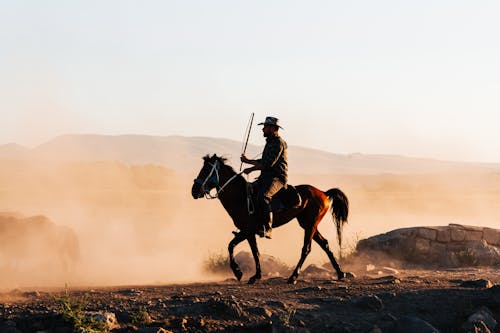
“Skedaddle” is a playful way of saying “run away quickly,” but it has gritty roots. The word gained popularity during the Civil War and carried into the Wild West era, where it described outlaws or cowboys making a hasty escape. It fit perfectly into frontier slang, where quick getaways were common. The rhythm of the word itself almost makes you move faster when you say it.
Today, we use it more for humor than urgency, often telling kids to “skedaddle” out of the kitchen or friends to leave in a hurry. The charm lies in its lighthearted twist on running away. But in its original sense, it was anything but funny. It’s proof that words can soften over time, even when born in danger.
6. Grit
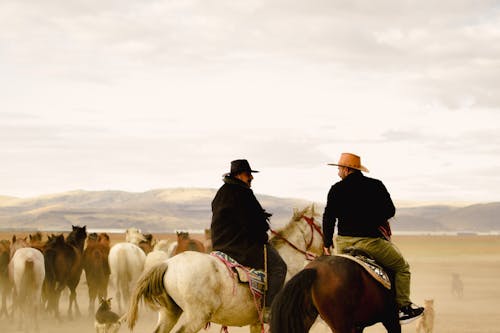
When someone says you’ve got “grit,” they’re paying a high compliment. The term became popular in the Wild West to describe toughness, resilience, and sheer determination. Out on the frontier, grit wasn’t optional—it was survival. Ranchers, lawmen, and settlers all needed it just to make it through daily life.
That legacy lives on in how we use it now, especially to praise perseverance in tough times. Whether it’s a student working hard or an athlete pushing through pain, grit is still the gold standard. The Wild West turned “grit” from just a texture into a character trait. It’s one of the clearest examples of how frontier values stuck around.
7. Hombre
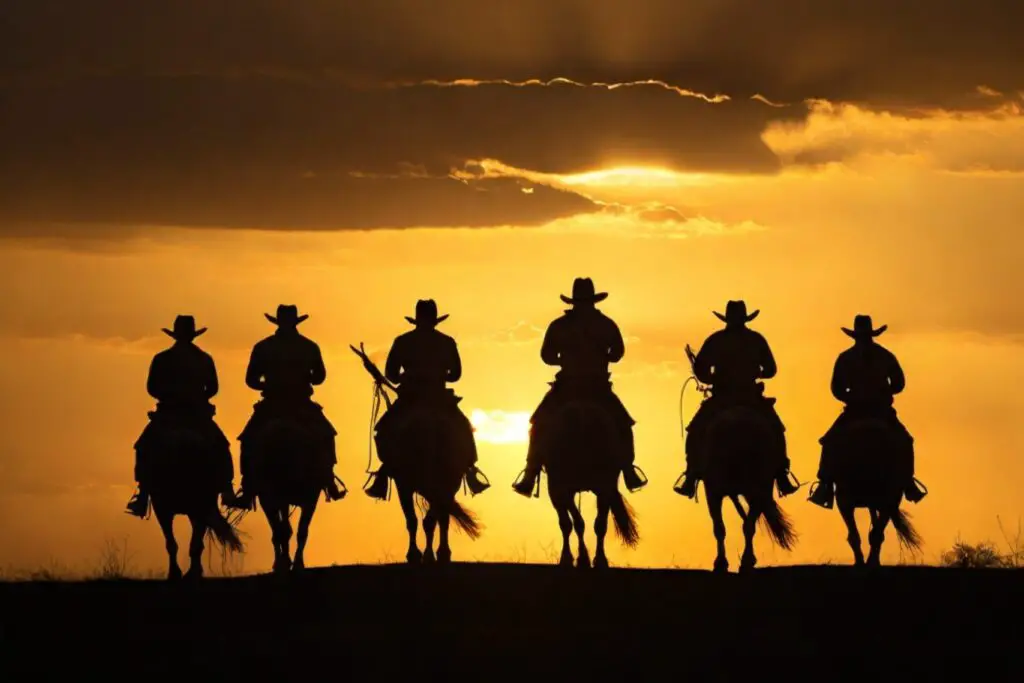
The word “hombre” is simply the Spanish word for “man,” but in the Wild West it took on a new edge. Cowboys and outlaws used it to describe a tough guy, sometimes respectfully and sometimes sarcastically. To call someone a “bad hombre” was both a warning and a grudging nod to their toughness. The blend of Spanish and English shaped everyday frontier talk.
Even now, “hombre” pops up in casual American speech when people want to add a Western or rugged flavor. It’s a tiny reminder of how much Spanish influenced cowboy culture. The word stuck because it carried a swagger that plain “man” didn’t. That mix of respect and toughness still appeals today.
8. Rustler
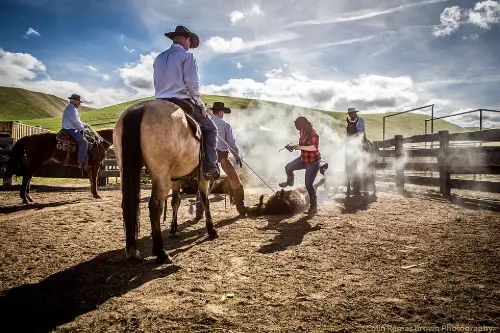
A “rustler” wasn’t just any thief—they specialized in stealing cattle, which was a huge deal in the Wild West. Rustling was common because cattle meant money, and open ranges made it easier to steal. Whole posses were formed to catch rustlers, and the word became shorthand for one of the worst crimes of the era. It symbolized the lawlessness of the frontier.
Nowadays, you’ll sometimes hear “rustle up” used in a more playful way, like rustling up dinner or supplies. The original word for a serious crime softened into something more domestic. But its root meaning still lurks in the background, giving it a rugged edge. It’s another example of how language can evolve from fearsome to friendly.
9. Cowpoke
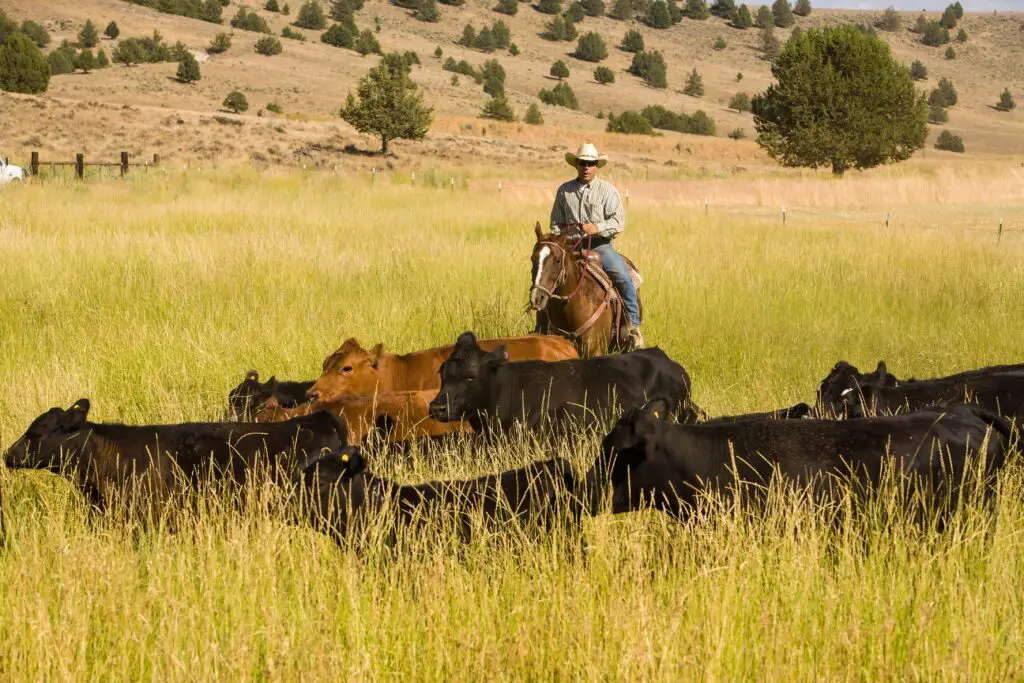
The term “cowpoke” was first used to describe cowboys who literally poked cattle with sticks to get them moving. It wasn’t glamorous, but it was part of the job on long drives. Over time, “cowpoke” became a general nickname for cowhands and ranch workers. It carried both affection and a hint of teasing.
Today, we often use it to playfully refer to anyone in cowboy boots or rural life. It’s a lighter, friendlier word than “cowboy,” though both share the same roots. Its survival in speech shows how even mundane chores shaped identity in the West. A cowpoke may have started as just a worker, but the word grew into a cultural icon.
10. Six-shooter
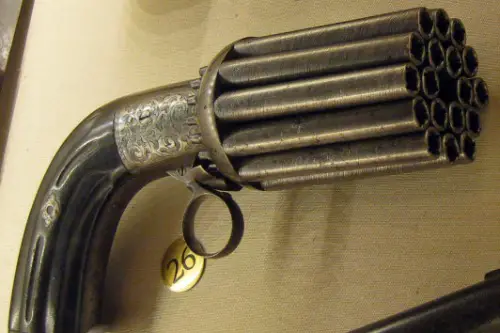
A “six-shooter” was the nickname for the revolver, the iconic firearm of the Wild West. The Colt revolver, with its six chambers, became the weapon of choice for cowboys, outlaws, and lawmen alike. It was practical, powerful, and deadly in a world where survival often depended on being armed. The term itself became shorthand for authority and danger.
Even now, you’ll hear “six-shooter” in movies, country songs, and pop culture. It instantly conjures an image of dusty showdowns and quick-draw duels. Though we don’t use the word in daily life as much, it’s deeply embedded in America’s imagination. The Wild West made the six-shooter as much a symbol as a tool.
11. Varmint
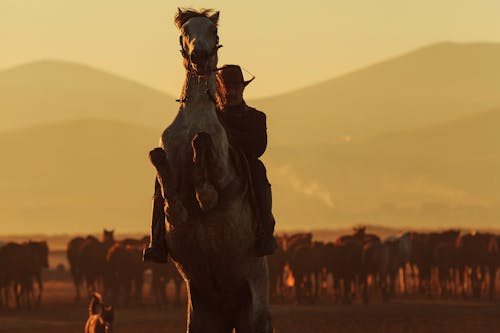
Calling someone a “varmint” sounds old-fashioned, but it was once a cutting insult. The word comes from a dialect variation of “vermin,” used to describe troublesome animals. Cowboys and settlers stretched it to label pesky people too—usually outlaws, cheats, or general nuisances. To be called a “varmint” was never a compliment.
Today, it’s mostly used jokingly, often in cartoons or Western spoofs. Still, the insult has bite because it carries history. It’s one of those words that can make modern speech feel rustic instantly. The Wild West gave it staying power by tying it to both pests and people.
12. Outlaw

Few words capture the Wild West as clearly as “outlaw.” Originally, it described someone literally outside the protection of the law—a criminal with no legal rights. In the frontier days, outlaws became legendary figures, both feared and romanticized. From Jesse James to Billy the Kid, the term defined an entire era.
We still use “outlaw” today to describe rule-breakers, rebels, and anyone who defies authority. It carries a mix of menace and glamour, depending on context. That balance of fear and fascination comes directly from its Wild West roots. It’s proof that the frontier didn’t just shape history—it shaped language too.
This post 12 Words Americans Use Daily That Were Coined in the Wild West was first published on American Charm.


